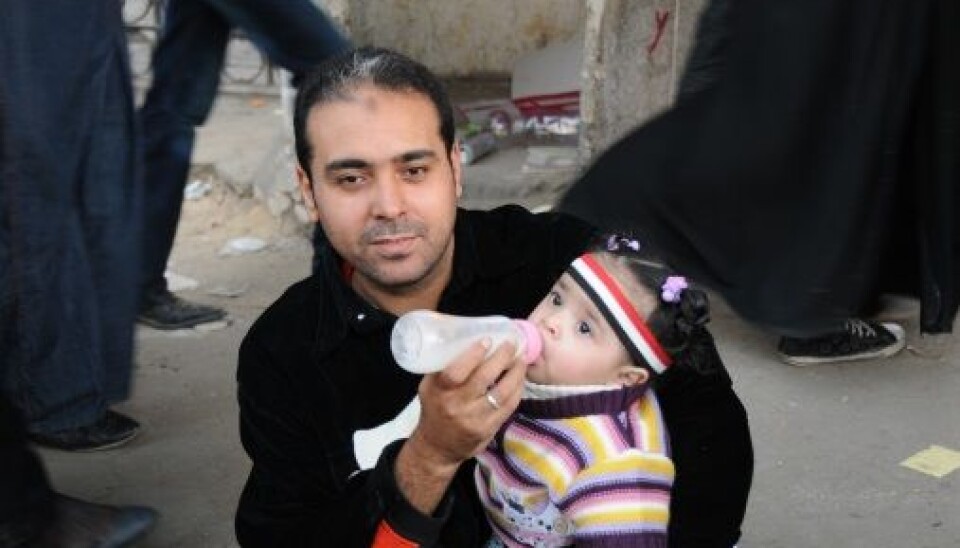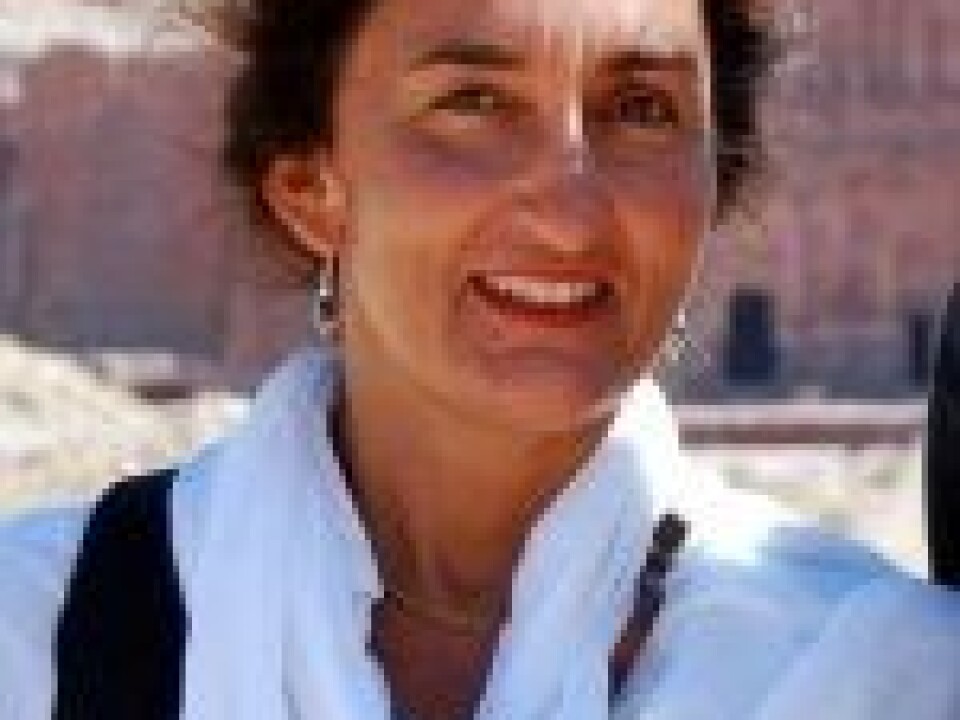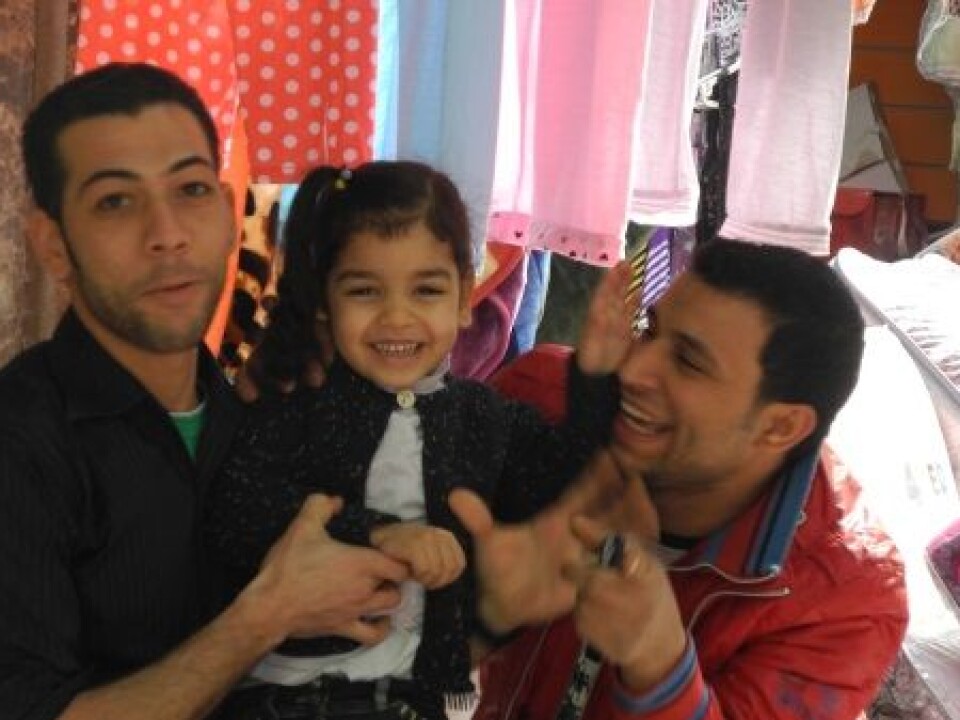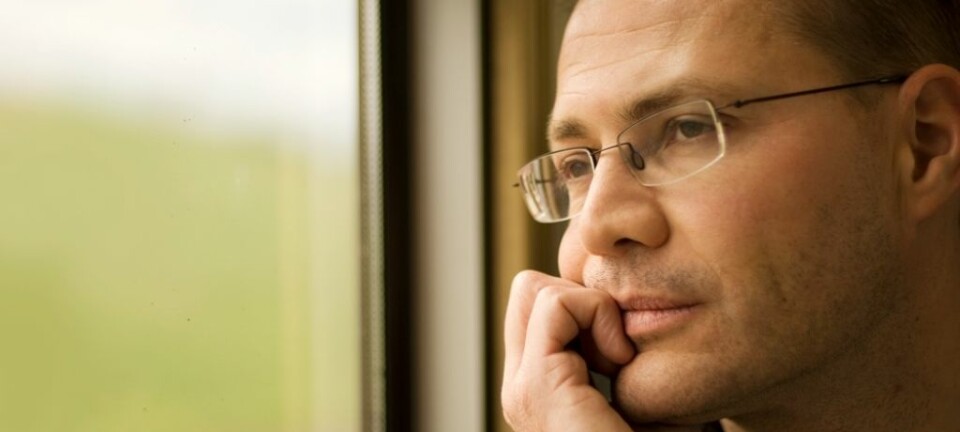An article from University of Oslo

“Research has neglected the caring Arab man”
The cover of her new book shows an Arab man feeding a baby milk from a bottle. “This is my way of moving Middle Eastern gender studies in a new direction,” says Nefissa Naguib.
"In November, your latest book “Nurturing Masculinities: Men, Food, and Family in Contemporary Egypt” came out. Was it a special occasion for you, even after 30 years research in Egypt and the Middle East?"
"Yes, it was. It is very special to finish a book and to hold it for the first time. I was very happy. It was launched in the US at the annual meeting of the American Anthropological Association (AAA) and at the meeting of the Middle East Studies Association of North America (MESA). It was sold out in both meetings, I think, because this book is different."
"In what way is the book different?"
"In Middle Eastern gender studies we have for the most part treated masculinity in its patriarchal and militarized form."
“I bring Arab men closer to the kitchen”

"… while you on the other hand, are publishing a book with a man bottle-feeding a baby on the cover?"
"Yes, this is my attempt to move Middle Eastern gender studies in a new direction. In the Middle East domestic chores have been connected to women’s lives. In this book I bring Arab men closer to the kitchen. I connect domesticity - the devotion to home life to men."
"Domesticity, among other things, is about compassion and caregiving. Arab Muslim men are invisible in most ethnographies of daily chores, doing domestic work and childcare. Men's participation has been neglected or marginalized."
"In the book I coined the term “nurturing masculinities” as a conceptual trope to demonstrate the ways food contributes to caregiving as a way for men to be men. Although Egyptian men don’t cultivate home life in the sense of providing daily childcare, cooking or cleaning, they play an active role in the production of domestic spaces and relationships."

"Men as bread-winners has been a prominent topic before?"
"Yes, but we haven’t talked about men who are worried about if everybody is okay. We haven't talked about men who are concerned about what the family is going to eat, that kids get their favourite meal or his favourite dish that he remembers from his youth. We never talked about men who like their children to tear off small pieces of bread and fold them into “cats’ ear” for scooping from a communal dish."
"We never talked about men wanting to be there while the kids are eating. Nothing makes men happier than to see the smiles on their children’s faces when served their favourite meal. It’s worth the whole world. We are familiar with such accounts from European literature, but not from the Middle East and especially not from Arab Muslim men."
Men against patriarchy
"Was there a specific event that inspired you to write this book?"
"Yes! I first thought about it when I was doing a study on the culture of bread and observed how men queued and argued about the quality of the bread they were taking home to their families. I was further inspired during the mass protests in Cairo in January 2011 when I saw so many men out in the streets together with women. A lot of men were protesting against patriarchy. They wanted to break the shackles that prevent them from being the man they want to be. Maybe they wanted to be husbands, but not in the same manner as their fathers. Perhaps it is ok for them when their wife works, or when they want to go out and have social relations other to what is expected from them"
"This made me think that we have to start new conversations about relationships between men and women, and about how we can approach them. So, I hope that this book can dispel the assumption that patriarchy is only about dominating women. It is also about dominating men."
"Do you have any favourite characters in your book?"
"I have a couple, in particular a man from the part of a book that I call “Real men eat fat”. He used to tease me about my research and claimed he has his own food research. According to him, one of the most important things in Egyptian cooking is samna baladi (Egyptian ghee). For him it is the flavour of Egyptian cooking. He told me that no man can live without this. He even invited me to taste his mother’s rice."
Something universal?
"Your only talk about Arab Muslim men. Why does your book not include Arab Christian men?"
"I have more material that includes Christians and other groups, but my editor at Texas University Press thought that Muslim men might need their own story."
"How can you divide people into Muslims and Christians when the realities of daily life are mixed?"
"Yes, you are right. I wish I had written about both."
"Maybe there would not have been much difference anyway?"
"That’s right. I don’t think there is much difference between a Coptic and a Muslim man."
"Maybe your book is about something universal?"
"Yes. The man holding the baby bottle - I might have a found a picture like that in Norway, of course, in France, Southern Africa, or Brazil."
"Nowadays we hear all the time that research should be useful. Is your book 'useful'?"
"The book might be useful in giving an idea about what men care about. It might encourage us to think about Arab masculinities in new ways. The book will be useful for policymakers and people who initiate gender projects. I also wrote the book in a way that it is easy to understand for first year students and people outside of academia. It also includes lots of humor."
Learning from silence
"Did you experience challenges in the field?"
"The periods of silence when you feel that your interlocutor has nothing more to say, you have over-stayed or they are bored with you. When I was first in the field in a Palestinian village one of my interlocutors sensed my awkwardness and said “I will give you the words to write with.” Her advice has stayed with me. I have learned to listen carefully to the long silences. Anthropological fieldwork allows for serendipity. I discover the unexpected or things I was not looking for or did not know I was looking for."
"What are you doing right now?"
"I am finishing up a project on military officers who protect the Brazilian Amazon against the outside world. But I am already into something else. I am picking up my previous research on local responses to global events, and the movement of people and things. I wonder about the Syrians who are following older migratory routes to Brazil and those who make their way up to the Arctic on a new migratory route."
Where the call for social change begins
"In your opinion, what is the point of anthropology?"
"Well, what we anthropologists are good at is going deep into local lives to understand global issues. When you look at what is happening in Syria, Iraq, Afghanistan etc, as scholars of the human condition, we must use our ethnographic approach to closely follow the refugees along the routes they take and to investigate what the refugee crisis reveals about the future of conviviality."
"The point with anthropology, I think, is to study the human condition. We must include questions about where the call for social change begins. Does it begin at home, in the streets, in social media? Or does it begin in a refugee tent, on a boat drifting in the middle of the Mediterranean? Or does the call for social change arrive via exiles in a neighboring country, or from the other side of the globe?"
What kind of adults will the Syrian children become?
"Your hopes and visions?"
"We should link contemporary issues more to history. Regarding the Syrian crisis, we should revisit the First World War, because the First World War has had as much impact in the Middle East as the Civil War has had in the United States."
"There are lots of understudied topics in Middle Eastern anthropology. Examples would be sustainable food production or the field of genetic and reproductive technologies. Globally, Israel is among the most advanced states in pre-implantation genetic diagnosis (“designer baby science”). Here, we have the chance to study the social dynamics in Israeli society."
"We should look at the wealth in the region, and the globally mobile class of men and women who are going to places like Dubai, Abu Dhabi and Doha. Dubai is opening an international airport, the biggest in the world, with its own residential community. This is definitely something anthropologists should look at."
– One topic that is close to my heart is seed banks. There was a seed bank in Abu Ghraib, but that has been bombed, and there was a seed bank in Aleppo, and we don’t know what happened to it. Some of the seeds have been salvaged and are stored in the Global Seed Vault in Svalbard.
– With all those children coming from Syria to Europe, we need to know how they are coping with life up here in the North. How do the children learn languages? What have they brought with them to the Arctic? What have they seen, what kind of adults will the Syrian children become?

































